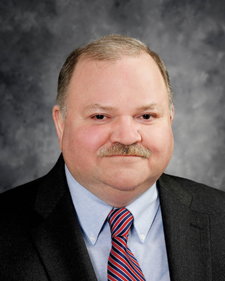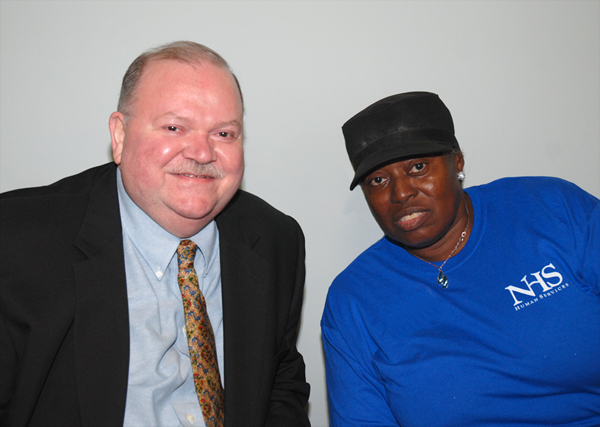
Michael Breslin ’71 has seen what healthcare can do for people with special needs. He’s watched children taken out of abusive situations go on to graduate from college. He’s witnessed the mentally disabled receive the care and structure they need to be happy and healthy.
Breslin has also seen healthcare fail these same people.
Working for state organizations, he’s observed people with intellectual disabilities get sick because doctors didn’t communicate properly. Other times he’s watched as children missed out on medical care because their parents didn’t understand which of the 950 public aid programs their child qualified for.
The ideas and intentions are good, Breslin explains. It’s the bureaucracy that gets in the way.
As Chief Operating Officer of NHS Human Services, one of the largest special needs healthcare providers in the country, Breslin has focused most of his career on making sure special needs patients aren’t victims of bureaucracy. He works closely with some of the top specialists, making certain they understand the patient’s perspective when making decisions and developing care plans.
“It’s a matter of being able to work through the barriers that get in the way of understanding each other,” Breslin says. “We end up with a stronger result when we bring together the best of all the disciplines.”
The average life span for people with serious and persistent mental illness is 25 years less than those without. The reason for this is conspicuous. In addition to their mental health issues, patients also tend to have chronic physical health issues that go untreated because their mental illness gets in the way of primary care.
Under a new NHS program model, patients receive primary care in addition to their mental health treatment all under the umbrella of one team. Medical doctors and mental health professionals work together, providing outpatient care under a single comprehensive plan.
By having medical staff go out into the community rather than working from an office, Breslin says patients receive more effective care and can continue their lives without extended hospital stays.
“We want people to be part of the community and bring the services to them,” Breslin explains.
NHS also allows patients to receive services on a lifelong continuum, regardless of age or illness. In essence, a child can come to NHS at 5 years old and have continuous care until late in life.
No bureaucracy, just common sense.
Breslin’s approach may be a bit different for an executive, but that’s because his roots are deep in the mental health field. The son of two mental health workers, Breslin remembers discussing compelling issues at the dinner table every night.
During his time at Scranton in the late 1960s, Breslin continued his passion for social justice. He recalls being involved in war demonstrations on campus, including one that resulted in the University president urging students to leave Linden Street as police in riot gear stood by.
That passion for social justice has continued into his professional life. NHS Central Region Vice President Carl Clark says you can see the social activist in every move Breslin makes.
“We often have providers who get into a business mode and lose touch,” Clark says. “Mike has always been someone who brings people back to the reality that our business needs to make sense to the people we serve.”



